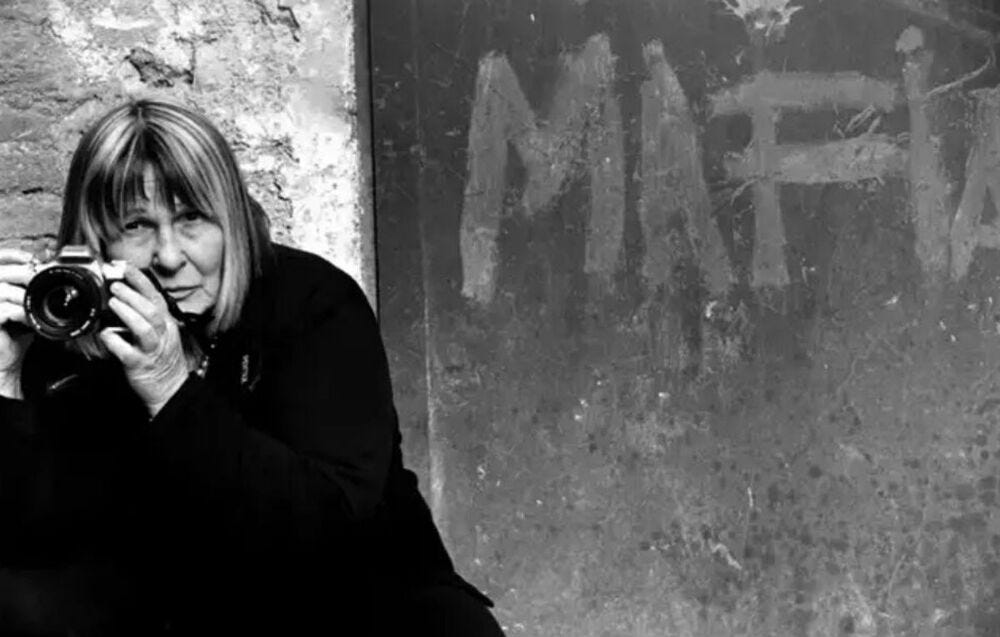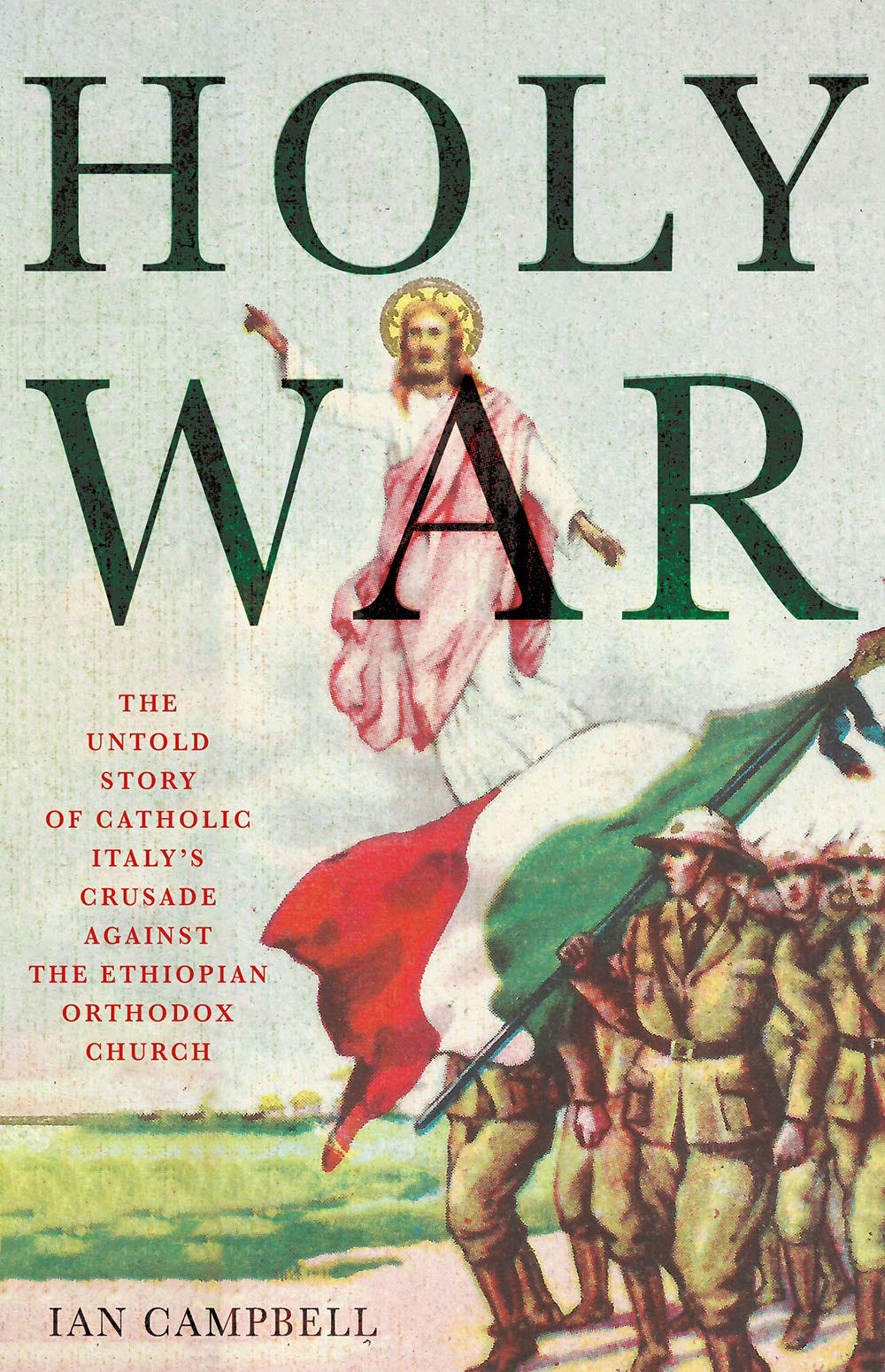First, some sad news. Letizia Battaglia, the Palermo-born photojournalist and documentary-maker, who spent decades of her life chronicling the realities of organised crime in the south of Italy died last week after a long illness. It would be difficult to overstate the importance of Battaglia’s work for the struggle against Cosa Nostra. She was a figure who, as the mayor of Palermo Leoluca Orlando recently stated, “made the invisible visible”, who refused to cower in the face of violent intimidation and remained committed, throughout her life, to communicating the dark truth of what it means to live under mafia rule. Many of her images are, frankly, horrifying. Once seen, her shots of the clan wars of the 80s and 90s in particular - of dead children, of corpses covered in blood - cannot be unseen. And yet Battalgia’s work was never gratuitous: on the contrary, her photos played an important role in turning public opinion against Cosa Nostra, and correcting the once-widespread idea that the mob never targeted civilians. Kim Longinotto produced a great documentary about Battaglia’s life back in 2019 called Shooting the Mafia, which was sadly overlooked due to the Covid-19 pandemic. If you’re interested in learning more about Battaglia, though, I highly recommend the film. It’s available to stream on YouTube here.
The historian John Foot published a powerful feature in the London Review of Books this week which is well worth a read. His piece is, in essence, a review of a study by Ian Campbell called Holy War: The Untold Story of Catholic Italy's Crusade Against the Ethiopian Orthodox Church which came out at the end of last year with Hurst Books. In his analysis, Foot looks at one of the many dark episodes of Italy’s colonial venture in Africa; focusing on the fascist plans to besiege and kill the inhabitants of the Debre Libanos monastery near Addis Ababa on the basis that the religious enclave could be a save haven for those resisting the regime. The campaign was, of course, a ‘failure’, as was Italy’s colonial mission as a whole. The ambitions and atrocities committed by men like Rodolfo Graziani and his squads, however, were all too real and remain disturbingly under-discussed in public debate. Foot’s full piece is free to read here, sans paywall.
The New Yorker recently published a good and LONG read about the Montessori school system, focusing on its evolution from being a radical, universalist proposal for educational reform in working class Rome (closely linked to socialist movements) into a parenting fad for the global elite. The author, Jessica Winter, tells a powerful and personal story about her own fascination with the idea, her sympathies with the original philosophy and frustrations with the mutations of the pedagogy in modern America. Along the way she offers a lucid and fascinating account of Montessori’s life and work, bringing in new revelations from a recently published book, The Child Is the Teacher by Cristina De Stefano, and ending with a wry critique of one particular ex-Montessori student: Jeff Bezos. For anyone who shares the contention that “children are, in their essence, methodical, self-directed beings with a strong work ethic, perfectly capable of deep concentration” this is a vital and nuanced read that resists straightforward conclusions. Check it out here.
Arts and culture: some inspiration for the weekend
Donatella di Pietrantonio’s masterful novel A Girl Returned received much praise on its release a few years a back, and quite rightly so. Well, Europa editions has just published the sequel, another critical success that was nominated for the Strega Prize in its Italian version. A Sister’s Story picks up a few years after the original story when Adriana, the younger and ‘wilder’ of the siblings from the first book, turns up breathless and afraid at the unnamed narrator’s door with a baby in tow. Once again reviewers have been celebrating the sparse, emotionally raw prose, and the candid portrayal of inter-generational violence that so many women inherit. Comparisons with Elena Ferrante are, of course, inevitable. But if you ask me the restrained language, the minimalism, and vast emotive gaps in the dialogue are, if anything, more reminiscent of Natalia Ginzburg than the Neapolitan novelist of the moment. You can order a copy or download the e-book directly from Europa here.
‘Specchio’, the long awaited first album by 19-year-old Italian pop star Ariete is one of my favourite records so far this year. The 11 short tracks, clocking-in at a total of just 32 minutes, offer a moody portrait of a young generation living in cheap monolocali, trapped in precarious work, struggling with mental health problems and the frustrations of Covid-19. The beats are an intelligent and subtle mix of indie and trap; pleasant enough on the ear if not especially groundbreaking. It’s the lyrics, though, that really make this worth a listen. Standouts tracks include CLUB, which is - basically - about being in a bad relationship, and CICATRICE (ft Madame) which confronts the heavy question of when it’s time to give up on a friend or partner who are, simply, toxic. OK, the album is a little self-indulgent at times, but for me the sad emo vibes are a powerful distillation of the isolation we’ve surely all felt these past couple of years, and - if nothing else - confirmation that Ariete is well-deserving of her informal epithet, “the Italian Billy Eilish.”
Recipe of the week: Torta Baciocca
I don’t know about you, but spring cooking for me tends to involve tarts, pies, filled pastry dishes and quiches ad infinitum. The kind of food that you can stick in the oven and snack on for a few days for lunch alongside some salad leaves and cherry tomatoes. Long story short, I’m constantly on the lookout for new pies this time of year. Well, the other day, as I was scrolling around searching for a Tuscan herb tart (an annual tradition in April) I came across this dish for Torta Baciocca; a potato pie from the Valle Sturla on the border between Emilia Romagna and Liguria. It’s a little different than most Central Italian pies in that it doesn’t contain any egg. In fact, curiously, it’s more like dauphinoise potatoes wrapped in pastry (though a little lighter than that glorious bastion of French cuisine). I’ve got a vague plan to cook this up for the 25 April bank holiday and take it on a picnic. So I thought I’d share the link from ‘A small kitchen in Genoa’ in case you fancy a go yourself.
About Me
My name is Jamie Mackay (@JacMackay) and I’m an author, editor and translator based in Florence. I’ve been writing about Italy for a decade for international media including The Guardian, The Economist, Frieze, and Art Review. I launched ‘The Week in Italy’ to share a more direct and regular overview of the debates and dilemmas, innovations and crises that sometimes pass under the radar of our overcrowded news feeds.
If you enjoyed this newsletter I hope down the line you’ll consider becoming a supporter for EUR 5.00 per month (the price of a weekly catch-up over an espresso). I’ll be launching a paid subscription option later this year, to help fund some more in-depth writing and some original graphics too. More on that, though, once the pandemic subsides. In the meantime, please do consider forwarding this to a friend or two. It’s a big help.






